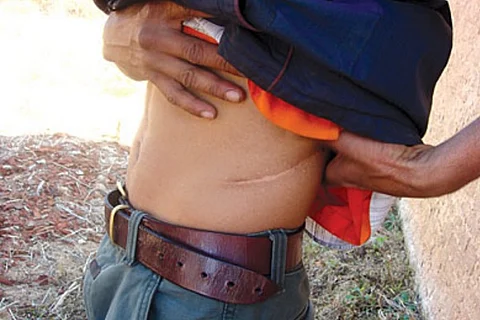

The dark reality of India's illegal organ trade and black market stared at our face in the first week of June 2016 after the Delhi police busted a kidney racket in New Delhi. Two of the five arrested were personal assistants of a senior nephrologist at Indraprastha Apollo Hospital, the three others were alleged middlemen. Following the arrests, several doctors and staff at the hospital are being questioned and their role investigated.
But with the arrest of the alleged kingpin, T Rajkumar Rao, it has now become evident that the racket goes beyond just one hospital. Rao is believed to have been running the racket in several countries including India, Sri Lanka, Bangladesh, Pakistan and Indonesia. Within India, he was allegedly operating the illegal trade in almost every major state. It is reported that he has conned at least 15,000 poor people, to build a business valued at Rs. 75 crore, enabling him to buy properties in several big cities. Rajkumar has reportedly confessed to having supplied kidneys to 15 other hospitals in the country.

T Rajkumar Rao, the alleged kingpin
Just recently, a Ugandan man alleged that his kidney was removed without his consent at a hospital run by Fortis healthcare in Bengaluru. After the recent arrests, Max Hospital and Manipal Hospital are revisiting their organ transplant policy. In 2008, a kidney racket was unearthed in Gurgaon, which is home to high profile hospitals like Medanta. National Hospital in Jalandhar has also been linked to organ trade. Bombay Hospital was in the dock a few years ago over similar allegations. Earlier this year, a kidney racket was busted in Gujarat and the investigation found that many patients were taken to Sri Lanka for illegal organ donation. The criminal trade rests on the nexus between middlemen, personal staff of doctors and lawyers, and it is people from weaker socio-economic sections who are victims of the trade.
At this juncture, it is important to not miss the woods for the trees. The government has to step in and take responsibility. While the hospitals in question are being investigated, punishment of those proven guilty alone will not end this massive, inhuman scam.
The investigation has shown so far that the conmen were able to subvert the laws of organ transplant by creating fake documentation, and this comes from corruption in the state administration. For example, a fake passport of an illegal donor from Sri Lanka cannot be verified by the hospital in question. Goverments have to step up measaures to reduce the easy availability of transplant documents.
Further, there are serious policy loopholes. For instance, the Transplantation of Human Organs and Tissues Act allows persons unrelated to patients to donate organs out of “love and affection”. This has been used by traders to transplant organs from illegal donors to patients in return for money.
The larger issue here is one of the gap between demand and supply. In a country where hundreds die in accidents every day, the lack of a steady supply of organs from dead patients is staggering. As thousands of healthy organs are buried or burnt along with bodies, several hundred remain desperate because they are unable to get organs they need. And this is the demand-supply mismatch which illegal traders exploit by destroying the lives of poor people. A government-backed cadaver donation scheme is the need of the hour.
In 2008, a summit in Istanbul brought out a declaration on organ trafficking and transplant tourism, and India too participated in it. Here are some key points from the Istanbul declaration, where India is still found wanting.
- To respond to the need to increase deceased donation, governments, in collaboration with health care institutions, professionals, and non-governmental organizations should take appropriate actions to increase deceased organ donation. Measures should be taken to remove obstacles and disincentives to deceased organ donation.
- The determination of the medical and psychosocial suitability of the living donor should be guided by the recommendations of the Amsterdam and Vancouver Forums.
- Mechanisms for informed consent should incorporate provisions for evaluating the donor's understanding, including assessment of the psychological impact of the process
- All donors should undergo psychosocial evaluation by mental health professionals during screening.
The illegal trade cannot he stopped just by arresting a few people today, but by preventing thousands of illegal donations from happening tomorrow, and that requires a massive policy and administration overhaul by the government.